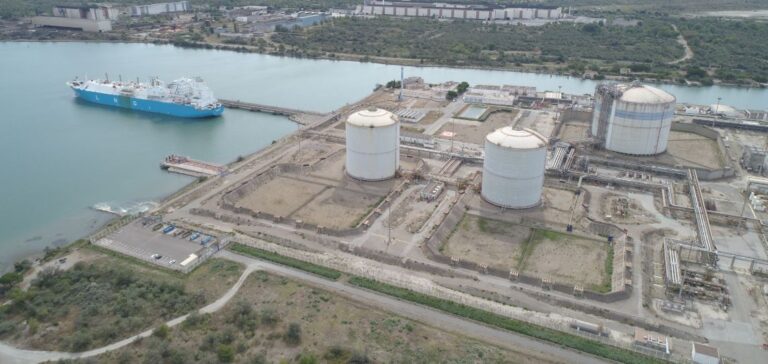The Commission nationale du débat public (CNDP – National Commission for Public Debate) launched this Wednesday in Fos-sur-Mer an unprecedented public consultation process on the future of the Fos-Berre industrial basin. Located approximately 50 kilometres from Marseille, this zone hosts a significant share of French industrial activity and accounts for one-quarter of the country’s industrial carbon dioxide (CO₂) emissions. Seventeen meetings are scheduled through 13 July across 13 municipalities in the Bouches-du-Rhône, Gard and Alpes-de-Haute-Provence departments.
The CNDP is coordinating discussions on forty industrial and infrastructure projects, including initiatives in hydrogen, steel and chemicals, as well as transport and logistics. These projects are largely concentrated within the Grand Port maritime de Marseille. The total value of potential investments is estimated at nearly €20bn, with the prospect of 10,000 direct jobs. The French State has designated Fos-Berre, alongside Dunkirk, to become a reference low-carbon industrial zone.
Debate structure and key topics
Georges-François Leclerc, Prefect of Bouches-du-Rhône, stated that the debate’s format is unprecedented, both in geographical scale and thematic diversity. Workshops focused on specific sectors—steel, logistics, green industry—and thematic meetings addressing governance, energy, technological risks and mobility will shape the discussions. Marc Papinutti, President of the CNDP, confirmed that this marks the first public debate encompassing multiple development projects within a defined perimeter.
One of the key issues involves securing electricity supply, with a proposed 65-kilometre very high voltage (THT) power line crossing part of the Camargue. Despite the presentation of a so-called “lower impact” route, local opposition remains strong, particularly in Arles and Beaucaire. The collective THT 13-30 has criticised the launch of the debate ahead of the publication of an independent assessment on options for burying the line.
Local concerns and decision-making framework
Jean-Luc Moya, spokesperson for the THT 13-30 collective, welcomed the long-requested debate but criticised the conditions under which it is being launched. He warned of the risk that the complexity and number of topics may overwhelm public understanding. Daniel Moutet, President of the Association for the Protection of the Gulf of Fos Coastline (ADPLGF), expressed similar concerns regarding the debate’s ability to adequately address proposals for new factories, hydrogen production and offshore wind developments.
Audrey Richard-Ferroudji, President of the Fos-Berre Provence Public Debate, assured that all alternative proposals would be assessed impartially and made public. However, she emphasised that the process is not a referendum. Final decisions will rest with the State and RTE (Réseau de transport d’électricité – Electricity Transmission Network), depending on the debate’s conclusions. The CNDP’s report is expected by 13 September, after which project developers will have three months to respond.






















